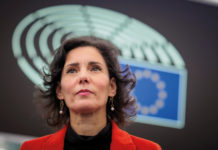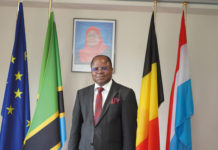Company Profile
Minerals Development Mining Company (MDCB) is an investment company that holds and manages mining & minerals assets for the Government of Botswana (GRB).
Established as a commercial entity, the company is mandated and well positioned to grow, optimise and diversify its mining and minerals portfolio as well as facilitate the development of the local mining and minerals sector. MDCB also provides the GRB with commercial and technical advisory services.
The company’s vision is to be a globally competitive investment company, contributing to Botswana’s financial security through generation of attractive returns from a resilient mining and minerals investment portfolio by being an active, innovative and responsible shareholder.
MDCB, which is mandated to invest in and out of Botswana, has interests in Morupule Coal Mine Minergy Coal, De Beers Group and BCL.
Opportunities In the Mining & Minerals Sector
Botswana is endowed with sizeable mineral resources, including diamonds which have played a key role in turning the country from being one of the poorest countries at independence to the middle-income economy it is today. Due to responsible mining backed by prudent macro-economic management, the country’s minerals have built social infrastructure, continuously improved the quality of life of its citizens and positioned the country well as one of the leading mining destinations of choice.
Opportunities for investment exist across the whole mining value chain and include beneficiation of minerals and as well as participation in related ancillary services. Enhancing use of technology in ways that leverage off the well qualified and experienced local mining human capital is a national imperative. In addition, the need to diversify the local mining and minerals sector, which has been is a key focus area of Botswana, is getting renewed impetus to unlock potential identified in other mineral resources that exist in Botswana.
While undergoing the first horizon of its investment strategy which is primarily focused on identifying and pursuing commercially attractive investment opportunities in Botswana, MDCB has become aware of the opportunities listed below. Given some of these opportunities have their independent owners and sponsors, MDCB cannot warrant the accuracy of the information provided herein. Further, this document is not meant to be an invitation to invest but merely to show case Botswana mineral endowment and probable opportunities as highlighted from publicly available information. Therefore, MDCB does not assume nor incur any liability for any loss arising from any use of the information herein or otherwise in connection therewith. Potential investors are strongly advised to carry out their own comprehensive due diligence ahead of considering any investments.
Coal
Overview:
Botswana is richly endowed with coal with relatively thick seams at shallow depths and suitable for power stations, the regional industrial industry and international export. In addition to the two operating coal mines Morupule Coal Mine and Minergy Coal, there are six known coal projects at advanced stages of development, with an opportunity to create a coal mining Hub in the country with a few more companies coming on the near horizon.
According to Fitch-affiliated market analyst BMI Research, “the Botswana government’s efforts to develop the coal mining sector will yield steady progress, supported by low operating costs, a solid project pipeline and rising domestic demand. Furthermore, coal-fired power generation plays an important role in southern Africa’s electricity mix, particularly in South Africa and Botswana, where BMI forecasts coal to account for over 95% of Botswana’s power mix by 2025. Botswana will be well placed to supply the region’s increasing coal demand.”
Probable business case:
Under investment leading to global supply gaps vis. installed global coal fired-power capacity.
Competitive advantages:
Relatively low stripping ratios, thick coal seams, proximity to regional markets.
Possible constraints:
Rail capacity, funding constraints, pace of technological innovation for power storage from renewables.
Known active projects: 4-5 projects.
Soda ash and Potash
Overview:
Botswana has the only soda ash deposit in the region, with growth options that have potential upside trajectory. The expansion of the current mine will support potential increase in salt and soda ash off-take, potential diversifying into potash and other related production. The brine reserves have the potential to plug demand for fertilizer and some other industrial supplies. MDCB sees material opportunity to increase regional salt exports with supportive rail-line capacity.
Probable business case:
Growth options for new products such as fertilisers and potash, growth in agriculture to push demand for fertilisers.
Competitive advantages:
Captive inland market
Possible constraints:
Rail capacity, competition from overseas suppliers.
Known projects: 1
Iron Ore
Overview:
The country has an iron ore project located in the North-West District. Initial assessments indicate an initial Block 1 resource of 441 Mt at 29.4% Fe (translates to circa. 146.2MT of concentrate valued at circa. US$14.9 billion in situ). It should also be noted that metallurgical results confirm a premium product of c. 67% Fe, with great in-country beneficiation potential. The project identified an exploration target of potentially 5 to 7 billion tonnes at 15-40% Fe, with a possible life of mine of over 100 years and highly scalable.
The resource offers a number of production options including a large mine of 63mtpa of ROM.
Possible business case:
Growing demand for growing infrastructure projects, strong demand from China and South East Asia projected.
Competitive advantages:
Possible existence of an extensive ore body.
Possible constraints:
Logistics, possible competition from seaborne suppliers.
Known projects: 1
Copper
Overview:
Botswana is endowed with good, but smaller, copper deposits of a similar style of mineralization to that in the Central African Copperbelt but at shallower depths. There are currently two key long-life projects at advanced stages of development to be considered by MDCB. Selecting the right Strategic Partnerships is seen as critical for long-term success if copper is included in MDCBs near-term strategic options. These developments are also supported by Government’s commitment to deliver 400Kv electric supplies.
Possible business case: Growing global long-term demand from a drive for greener technology and electrification (making more projects viable) .
Competitive advantages:
Developing Kalahari Copper Belt region with potential for a hub of copper projects, future consolidation of projects possible, projects with low capital intensity.
Possible constraints:
Logistics, possible competition from the Zambian and the Democratic republic of Congo copper belts.
Known projects: 2
Manganese
Overview:
Botswana has manganese bearing deposits near in the Southern part of the country, with this mineralization seeming to be better suited for the making of batteries – Thus the use in batteries is most exciting prospect for investment potential. According to the International Manganese Institute, in 2017 total Mn demand for cathode production in Li-ion batteries was 21,000Mt and expected to increase to 163,000Mt by 2027. This provides a good opportunity for the country to continue with further studies to unlock this exciting opportunity. An ongoing project being monitored has recently updated its mineral resource to 1.7Mt at 25.7% MnO.
Possible business case:
Growing global battery market and possibility of producing battery grade product.
Competitive advantages:
Proximity to rail and road network into South Africa’s ports and facilities, possible low capital intensity and operating costs.
Possible constraints:
Relatively smaller deposits, competition from well-established producers, establishment of non-manganese based battery and/or other power storage technologies.
Known projects: 1
Coal Bed Methane (CBM)
Overview:
The Botswana CBM gas resource is significant, thought to be third in terms of availability in southern Africa at an estimated 30 tcf (trillion cubic feet), with a conservative 5 tcf of the above gas technically and economically recoverable. There is one hybrid power station ready for CBM uptake and a power project underway, further exploitation of the resource could lead to a large 300 MW gas-fired power station in the country as well as several smaller power peaking stations. Potential of the resource could also facilitate Gas-To-Liquid projects, LNG plants as well as piped gas and CNG to smaller consumers. Liquefied gas has significant demand in a neighbouring country, which could be served by Botswana.
Possible business case:
Possible export option to South Africa given small market size of Botswana.
Competitive advantages:
Steadily developing projects and a sizeable countrywide resource base.
Possible constraints:
Slow government support as facilitator and operator, narrowing window from growing renewable energy production.
Known projects: 1
Gold
Overview:
Botswana has a small known gold resource with one long running mine currently in operation. The mine produced between 24,000 – 35,000 oz annually over the past five years. Gold price increases over the last year have favoured such operations. Exploration and mapping continue in its lease areas.
Possible business case:
Small sustainable operations could provide alternative revenue and diversification, exploration potential.
Competitive advantages:
Existing operation could be maintained with good prices supporting.
Possible constraints:
Relatively smaller resources, historically low exploration activity (resource extension required) therefore short life-of-mine.
Known projects: 1
Diamonds
Overview:
Botswana’s established diamond mining sector as one of the leading revenue generators for the country has a long and stable history as the largest producer by value. Mining projects in all stages are ongoing and value chain activity is steadily increasing. The two large producers, Lucara and Debswana, have announced and commenced expansion plans up to 2040+.
Possible business case:
Making most of the available resource, skillset, infrastructure and operating environment could develop smaller mines for added revenue.
Competitive advantages:
Sustained government support, established and stable industry with relatively good labour, policy and operating environment; most require simple extraction methods.
Possible constraints:
Changing industry/market fundamentals such as increasing competition from synthetic diamonds and ESG factors, increasing costs for established mines.
Known projects: +4
Battery Metals
Overview:
Botswana is endowed with nickel, copper, manganese and cobalt resources that are being re-reviewed and explored. Further, there is activity at varying stages for minerals such as vanadium.
Possible business case:
With sustainable long term prices existing assets could be revived and exploration increased, decarbonisation is gaining significant momentum.
Competitive advantages:
Existing infrastructure, abundant solar resource, proximity to inland market should Botswana become a hub for battery metals beneficiation.
Possible constraints:
Resources still underexplored.
Known projects: TBC
Sources of information:
1. MDCB Corporate Strategy of 2019.
2. http://www.tsodiloresources.com/s/Metals.asp?ReportID=609947
3. https://www.sandfire.com.au/site/Business/sandfire-emea/Tshukudu-Operations
4. https://giyanimetals.com/projects
5. https://www.minergycoal.com/about-masama/
6. https://www.galanegold.com/operations/mupane/
7. http://www.tsodiloresources.com/s/Diamond.asp
8. https://botswanadiamonds.co.uk/operations/botswana/
9. https://www.gemdiamonds.com/operations.php
![[:fr]DCIM/100MEDIA/DJI_2350.JPG[:]](https://perspectives-cblacp.eu/wp-content/uploads/2021/07/Motheo-Project-696x522.jpg)


